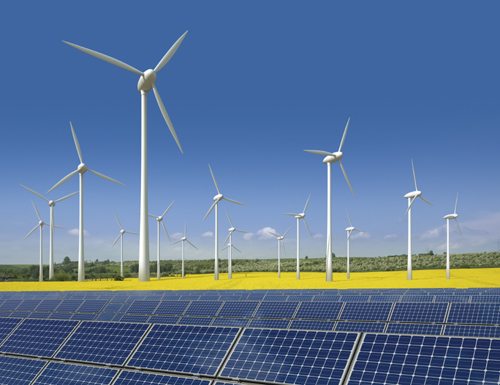Renewable energy in Ghana gets shot in the arm
Renewable energy in Ghana has received a shot in the arm after the Ministry of Finance approved US$230m budget for the Scaling-up Renewable Energy Investment Plan (SREP-IP) under the Climate Investment Fund.
The budget approval for renewable energy in Ghana will allow the government to invest more in the mini-grid sector which is projected to increase the country’s renewable energy generation capacity in order to attain the price reduction in electricity.
According to Finance Minister, Seth Terkper, the project plan to boost Renewable energy in Ghana will be spearheaded by the private sector. The sector is expected to provide essential services such as construction, procurement and engineering.
The government of Ghana is however, considering to implement the SREP-IP. Nevertheless, the Power Ministry is expected to influence additional financial boost to achieve the embattled flagship investments in the renewable energy sector under the SREP-IP Programme.
Ghana Renewable Energy fair
Speaking during the second edition of the Ghana Renewable Energy fair themed, ‘Energy and Energy Efficiency, Accelerating Energy Access and Security’ on behalf of the Finance Minister, Mona Quartey, the Deputy Finance Minister, stated that, the government is fully aware of the importance of the renewable energy and the role it can play in accelerating and catalyzing the country’s socio-economic development as well as achieving the universal access ahead of the target date of the UN Sustainable Energy for All Initiative.
Ghana’s Energy Commission Chairman, Dr. Kwame Ampofo, noted that, the renewable energy fair is borne out of the need to connect the information gap between the industry and the desired market environment as envisaged and stipulated in the Renewable Energy Act, 2011 (ACT 832).
Ghana government is also considering to construct more mini-grids to cover over 200 islands and 2,000 lakesides communities that are in the medium term. A major policy decision to mainstream mini-grids into the nation electrification scheme will be indicated to have engaged by the government.
Investors in the renewable energy sector are urged to have their footprints visible in the renewable energy sector as well as creating the right synergies to propel the collective efforts in achieving the country’s renewable energy medium-term target of 10% by 2020.
The renewable energy sector targets to install 20,000 solar systems in residential homes technology. Moreover, Ghanaians are encouraged to buy into the idea of adopting renewable sources of energy.
Funding for renewable energy in Ghana comes at a time when Energy in Africa is needed to boost its industrialization plans.

